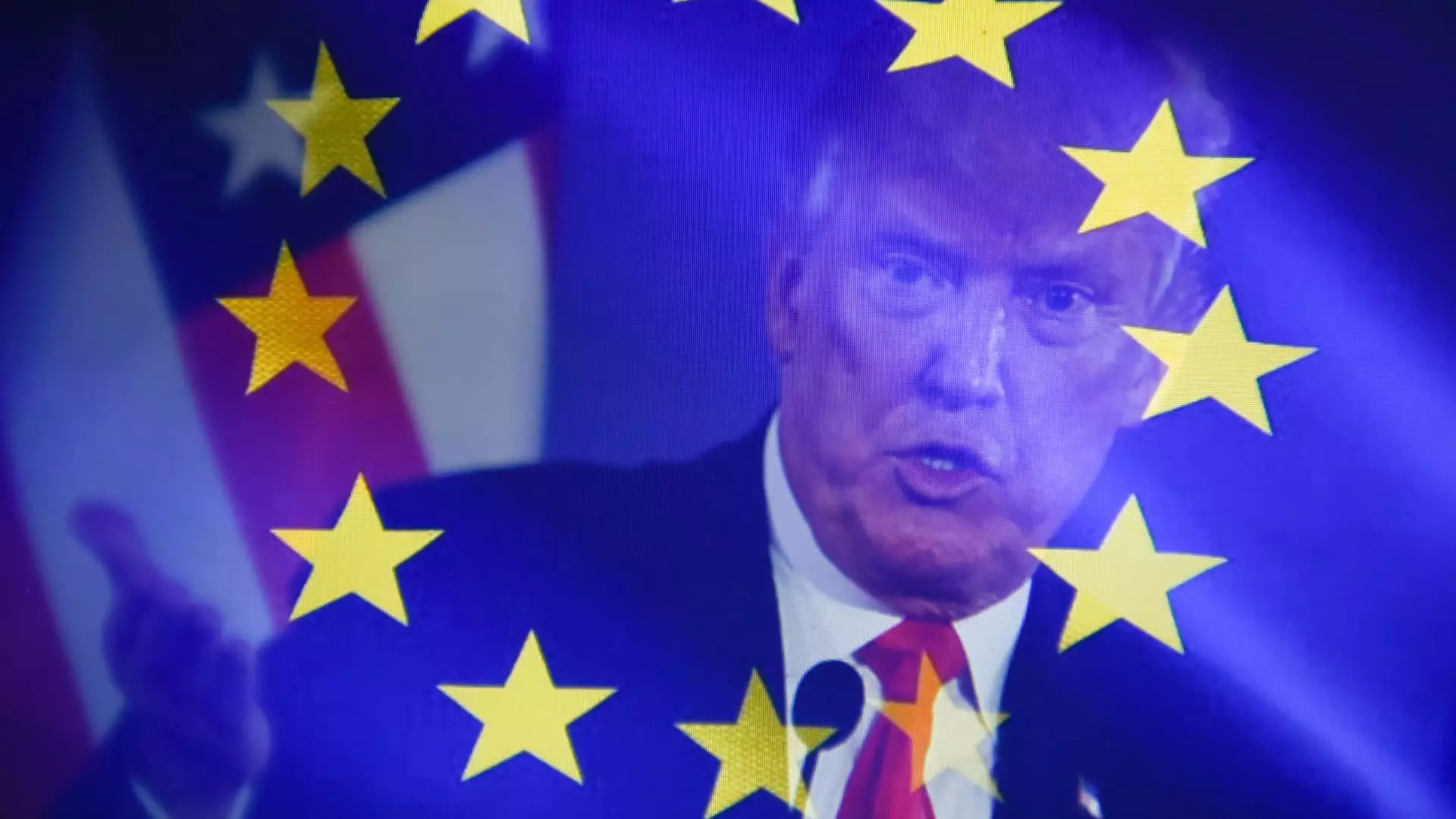The European Union (EU), under the leadership of President Ursula von der Leyen, has made a pivotal decision by pausing the import tariffs on a range of U.S. goods for a period of 90 days. This move coincides with the Trump administration’s sudden easing of its 25% tariffs on essential items such as steel and aluminum. The ongoing trade negotiations are fraught with tension and uncertainty, but this temporary reprieve serves as a prime example of political maneuvering in international relations. By delaying retaliatory tariffs designed to counteract the U.S. position, the EU is attempting to create a window for diplomatic discourse, illustrating that pragmatism can sometimes triumph in the face of apparent aggression.
The Context of Economic Escalation
Tariffs are not just fiscal instruments; they are also tools of power, intended to reshape the economic landscape in favor of one party while disadvantaging another. The EU’s response to the U.S.’s heavy-handed approach—characterized by swirling accusations and punitive tariffs—was initially castle-wall high: they readied a package to hit a broad spectrum of goods from poultry to machinery. By opting for negotiation over immediate retaliation, the EU is signaling a desire to remedy the economic schism that has grown over the past year. One could argue that this approach demonstrates a level of restraint that is increasingly rare in global politics; however, it raises the question of whether this method of engagement will yield fruitful results or merely delay an inevitable confrontation.
Pitting Economy Against Diplomacy
As market reactions to diplomatic announcements reveal, market players are keenly attuned to the rhythms of bilateral trade talks. When the U.S. administration announced the temporary reduction of tariffs from 25% to 10%, stock markets surged, illustrating the reliance of capitalist economies on stability and predictability. This sudden shift not only invigorated financial markets but also provoked a noticeable uptick in the euro against the U.S. dollar. Nevertheless, the underlying tension of unresolved trade disputes still looms large over the landscape. The EU’s pause could readily be viewed as a last-ditch effort to salvage trade relations, not as a genuine willingness to abandon punitive measures. This assumption, however, ultimately leads to a critical question: how much do economic ties mean in a political realm that seems to relish constant power games?
Ursula von der Leyen’s Vision of Trade
President von der Leyen’s assertion that “tariffs are taxes that only hurt businesses and consumers” reflects an understanding of the broader economic implications of such tariffs. It is not merely a fear of economic hardship; rather, it is a firm belief in the interconnectedness of global markets. Advocating for a “zero-for-zero” agreement may, in her mind, elevate labor and consumer interests over nationalistic high ground, positioning the EU as a voice of reason amid escalating tensions. Yet, how persuasive can such arguments be when placed against a backdrop of nationalistic fervor and protectionist policy? Von der Leyen’s rhetoric adds a layer of complexity to the EU’s approach; the bloc does not merely wish to retaliate, but also aims to rehabilitate the transatlantic relationship that has become marred by accusations of unfairness and inequity.
Broader Implications for Global Trade
The EU’s broad response to Trump’s imposition of tariffs holds potential implications that extend well beyond the immediate trade between the EU and the U.S. The fear remains: what happens if negotiations fail? The specter of the EU targeting U.S. technology services as a countermeasure suggests an escalating cycle that could spiral out of control, jeopardizing the stability of global markets. Thus, while the tariff war may be temporarily subdued, the cyclical nature of trade disputes could set a dangerous precedent for future international relations. This situation highlights the fragility of trade partnerships; it serves as a clarion call to adopt cooperative action rather than antagonistic tactics.
In examining the EU’s calculated strategy, we must remain vigilant and realistic. The looming uncertainty of outcomes from negotiations stirs unease in an already volatile global economy. The rhetoric surrounding tariffs may promise diplomacy, yet the reality of power dynamics suggests that solutions will not be easily attained. As viewers of this complex international chess game, we are left to wonder whether the EU’s olive branch will be grasped securely or cast aside in favor of hard realities.

